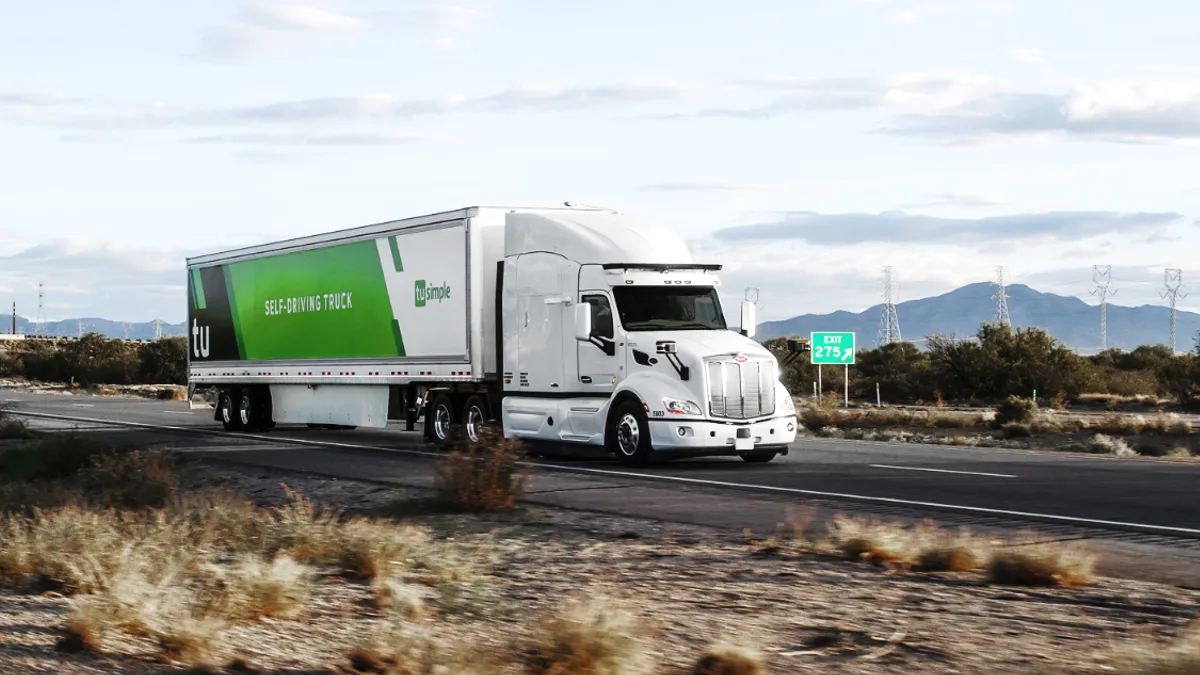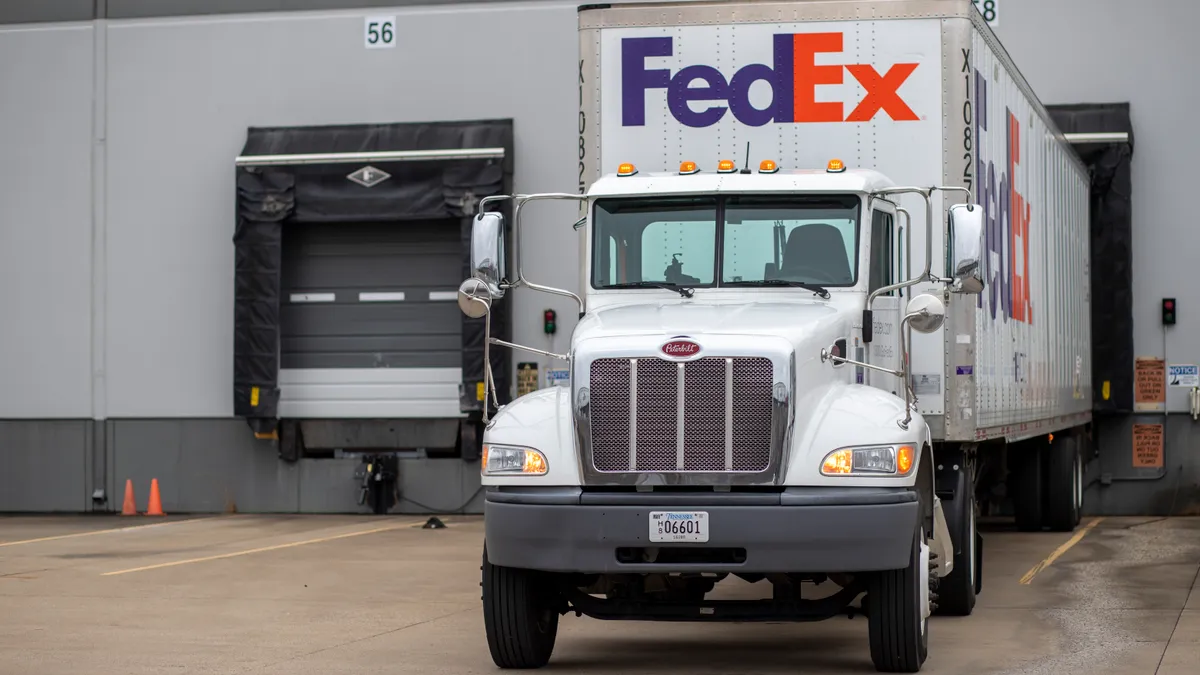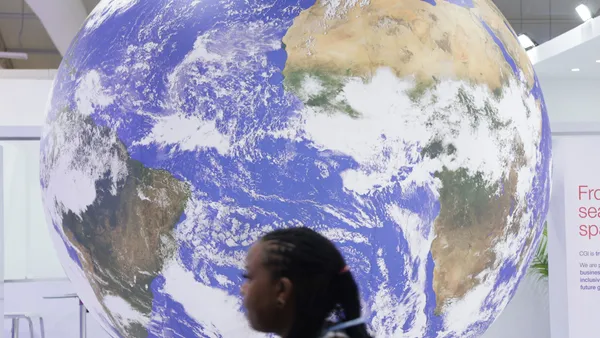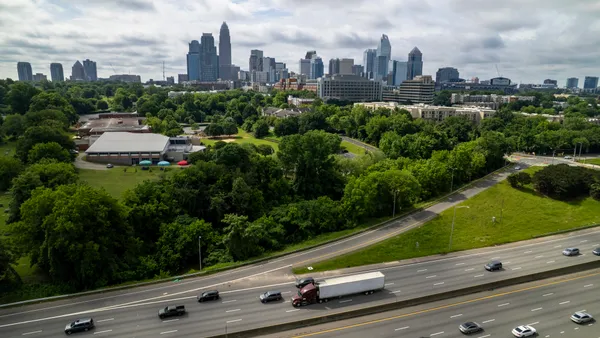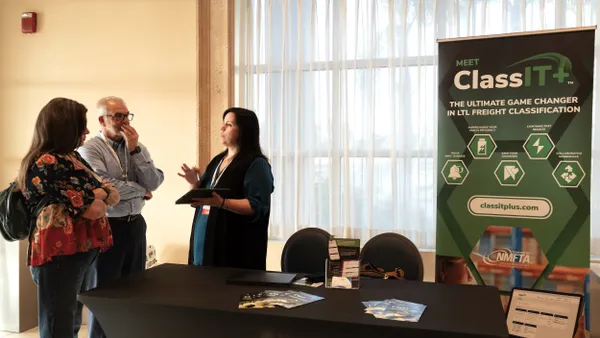As autonomous trucks come to market, the first fleets in line to buy will be the country's large carriers — "no doubt about it," TuSimple Chief Administrative and Legal Officer Jim Mullen told Transport Dive in April.
Mullen said TuSimple's targets are high-value, repetitious lanes, which are typically dedicated. Those types of routes are suited to the company's mapping technology, a critical part of the autonomy. But they're also lanes frequented by carriers that can afford cutting-edge equipment.
TuSimple announced Monday that Penske Truck Leasing, Schneider and U.S. Xpress are among what it called "the first wave" of customers to put in reservations for its Level 4 International LT Series trucks, which are set to begin production with Navistar in 2024.
So far, TuSimple has received 6,775 reservations.
"These early reservation numbers reflect the appetite surrounding self-driving technology in long-haul applications," Navistar Vice President of Emerging Technologies, Strategy and Planning Bob Walsh said in the announcement.
Reservations are like pre-orders, Mullen said in a followup email. But unlike a reservation at a restaurant, not just anyone can call one in.
From partner to customer
TuSimple and Navistar began the customer-selection process last September.
"We were highly selective as this is more than just a purchase — it is a commitment to the technology, and a tailored approach for each reservation holder," Mullen said.
This is part of the company's go-to-market strategy: the TuSimple Autonomous Freight Network, knows as the AFN.
"This is more than just a purchase — it is a commitment to the technology."

Jim Mullen
Chief Administrative and Legal Officer at TuSimple
In the AFN partnership program, carriers and shippers can get involved with the development process and become a customer, perhaps make an investment in the now-public company, and/or sit on its Executive Advisory Board.
Current partners are UPS, the U.S. Postal Service, Union Pacific, Canadian National, Goodyear, McLane and Werner. The three big-name buyers — U.S. Xpress, Penske and Schneider — are also AFN partners, as are TuSimple's manufacturing partners, Traton and Navistar (the former, a Volkswagen subsidiary, agreed to acquire the latter last year).
TuSimple customers have two options, Mullen said:
- Carrier-Owned Capacity: Customers purchase their own fleet of autonomous trucks from Navistar, then run them on TuSimple technology.
- TuSimple Capacity: TuSimple acts as a third-party-logistics provider, hauling freight on behalf of the customer using its own retrofitted fleet of autonomous trucks. This model is already being used.
As part of the TuSimple Capacity option, Mullen said, TuSimple hauls freight daily for UPS, from Phoenix to Tucson, Arizona. And many reservation partners use that model currently, too, he added via email.
Those who opt to own their capacity work closely with TuSimple to prepare selected lanes today to get an early start on de-risking. After the reservation is made, lanes are mapped, and TuSimple's oversight systems are connected to the customer's transportation management systems. That way, the trucks can be a plug-and-play solution when they roll off the line, TuSimple said.
Reservations can be fully canceled, though Mullen said the company is "confident in the seriousness of the intent behind each one due to the long vetting process," and its decision to engage only a small group of customers at this point.
It takes large amounts of collaboration and resources to bring disruptive technology to market. Being highly selective gives TuSimple a better chance of entering high-trust relationships, where customers are more likely to contribute and less likely to back out.
TuSimple is in the preliminary stages of expanding the reservation program, but it's still an exclusive process. Mullen said the company is focused on "another selective group of high quality, sophisticated truck fleets."
The timeline for small fleets
The large fleets with reservations won't start integrating TuSimple trucks into their fleets for at least three more years. And it could be over a decade until smaller fleets will be able to access the equipment for themselves.
When it comes to these types of technology and equipment, small fleets don't have the funds to buy hot off the line. So, they buy the equipment used. And it could be 12 years before small fleets can start that process, given the time it will take for automated trucks to be produced at scale, and for more fleets to procure and use them, Locomation Vice President of Policy and Strategy Finch Fulton said.
"That means, for 90% of the industry, it's ... years down the road before they buy it secondhand," he told Transport Dive during an interview in February.

For some, that timeline may sound discouraging. Makers of autonomous trucks tout the added safety, a reduced carbon footprint and lower related costs of their products, and that may be out of reach for most firms for a long time.
But for others, the extended timeline means they won't have to worry about purchasing the equipment and can expect less disruption in their immediate peer group.
While the large fleets engage in technological arms race or risk becoming less competitive, small fleets can, for the most part, keep doing what they're doing.
Clarification: TuSimple clarified its comment attributions, which this story has been updated to reflect. Locomation clarified the length of time until small fleets procure automated trucks.


